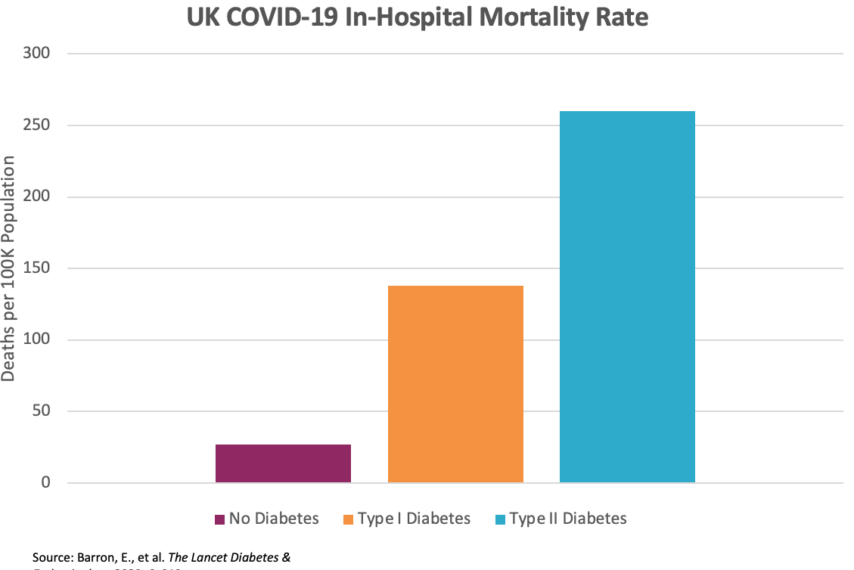Health Finance Digest - What does a Biden-Harris Presidency Mean for Global Health
On November 7th, news sources worldwide called the U.S. presidential election for Joe Biden and Kamala Harris. With a new administration taking control of the White House in January, fiscal and public policies are bound to change and impact the global health investment space.
President-elect Biden has promised to “rejoin the WHO and restore [America’s] leadership on the world stage.” The WHO’s Director-General, Tedros Adhanom Ghebreyesus, has congratulated him and welcomed the opportunity to “reimagine leadership…to end the pandemic and address the fundamental inequalities that lie at the root of so many of the world’s problems.”
As the incoming administration renews the United States's commitment to the WHO, it should consider renewing and improving the country’s commitment to fighting noncommunicable diseases (NCDs) as well. Historically, much more of the U.S.’ substantial contributions to the WHO has gone toward communicable diseases, like polio, tuberculosis, HIV, and hepatitis. Together, those diseases received about 35% of U.S. funds to the WHO, which amounts to over $200 million. NCDs, by contrast, receive just half of a percent of total U.S. funding; a mere $3 million.
The U.S. is uniquely positioned to turn this tide and shift attention and funding to where it is most needed. As the WHO’s top funder by far and a leader in the international sphere, the U.S. wields great influence and can help set the agenda in global health. The incoming administration should do just that as it recommits the country to global health initiatives. Returning to the status quo is no longer enough – the country must become a leader in global health by making a real commitment to combating NCDs.
|

|
|
Launch of the OECD’s Global Outlook on Financing Sustainable Development Report
Earlier this month the OECD held an event to commemorate the launch of their 2021 Global Outlook on Financing Sustainable Development Report (GOFSD). The event brought together a great panel of speakers including Erna Solberg (Prime Minister of Norway), Klaus Schwab (Founder and executive chairman of the World Economic Forum), Daniel Zelikow (Governing Board Chairman of the J.P. Morgan Development Finance Institution at J.P. Morgan), Manuel Muniz (Spain’s Secretary of State), and Prof. Jeffrey Sachs (Director of the Center for Sustainable Development at Columbia University).
The GOFSD calls for urgent and bold action to implement the Addis Ababa Action Agenda (AAAA) and fulfill the promise of agenda 2030 at home and abroad. Seeking to mobilize a greater quantity of financial resources for developing countries will not be enough; the quality, or sustainable development footprint, of all finance, must be enhanced. The GOFSD identifies three areas for reform. First, on measurement: we need better indicators and tools to assess the volume of financial flows and their alignment with the SDGs. Second, policy reforms are needed to shift the trillions, i.e., create incentives for a greater share of the total available finance to be invested in sustainable development. And, third, to improve the coordination of various actors in their operations to better connect supply and demand for financing for sustainable development.
Watch the launch event here.
|
|
|
Events
- Annual Health Financing Forum, 12 Nov – 10 Dec 2020
- G20 Leader’s Summit, 21-22 Nov 2020, hosted by the Saudi G20 Presidency
- Cancer Beyond COVID-19 series: #3 Strengthening the Case for Investment in Cancer Control, 1 Dec 2020, hosted by UICC
- 2020 Triangle Global Health Annual Conference, 3 Dec 2020
- 2020 Global Digital Health Forum, 7-9 Dec 2020, hosted by Global Digital Health Network
- Devex World 2020, 10 Dec 2020, hosted by Devex
Resources
|
|
|
Please consider making a donation to support our work.
|
|
Thank you for your interest in HFI!
|
|
|
|
|
